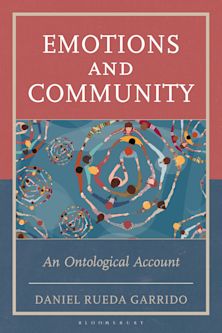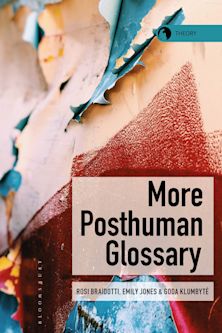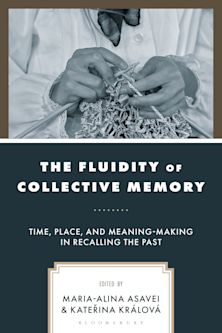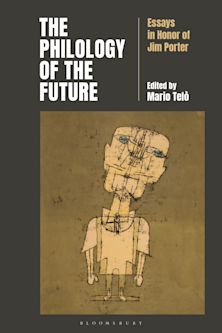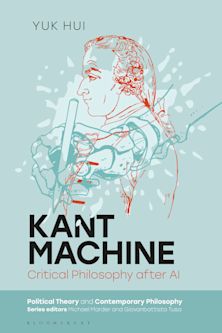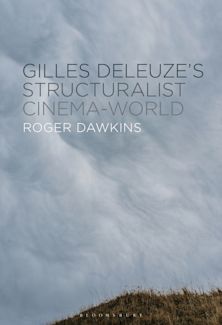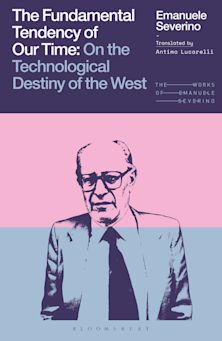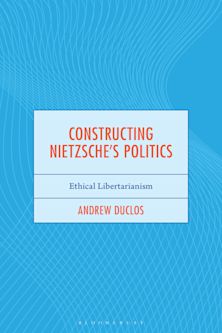- Home
- ACADEMIC
- Philosophy
- Continental Philosophy
- A Phenomenology of Love as Event
A Phenomenology of Love as Event
Bultmann Beyond Heidegger
A Phenomenology of Love as Event
Bultmann Beyond Heidegger
You must sign in to add this item to your wishlist. Please sign in or create an account
Description
Rescuing Rudolf Bultmann from Heidegger's shadow, Nikolaas Cassidy-Deketelaere presents a philosophical reading of his theology, which reveals his unique phenomenology of love as an event.
Bultmann (1884-1976) is often regarded as a mere footnote to Heidegger's philosophy: a theologian whose thought was principally built on the Heideggerian analytic of human finitude. Yet, by reading Bultmann anew, in light of other continental philosophers' engagement with Heidegger – from Jaspers and Levinas to Ricœur and Falque – this book rejects that idea as a misunderstanding. Instead it contends that Bultmann radically develops and even improves upon Heidegger's phenomenology.
Guiding the reader through his argument in a clear and compelling style, Cassidy-Deketelaere reveals how Bultmann understands the experience of love as not being limited to an empirical occurrence but rather having a truly transcendental scope: what phenomenologists would now call 'event'. With this, Bultmann's theology not only resolves the contemporary critique of Heidegger's method as precluding a dynamic between the empirical and transcendental, but further provides a new alternative paradigm of human finitude based on love, and not death (Heidegger) or birth (Arendt).
Far more than a footnote, The Phenomenology of Love as Event uncovers Bultmann's significant contribution to philosophy. Through his theological writings, Bultmann shows us that love is the central experience of human existence, one that transforms the being of Dasein, despite Heidegger never allowing for it.
Table of Contents
Acknowledgements
Introduction: The Philosophy of Rudolf Bultmann
Part I: Existentialism: John Macquarrie and Martin Heidegger
1. The Project of an Existentialist Theology
2. The Comparison of Heidegger and Bultmann
3. The Poverty of the Empirical
Part II: Hermeneutics: Paul Ricœur and Karl Jaspers
4. A Lutheran Hermeneutics of the Event
5. The Interpretation of Faith
6. The Limits of Faith
Part III: Lutheran Neo-Kantianism: The Marburg School
7. Bultmann and the Intellectual Life of Marburg
8. The Logical Idealism of Cohen and Natorp
9. Herrmann's Lutheran Anthropology
Part IV: Phenomenology: Towards an Eschatological Ontology of Love
10. The Eschatological Event
11. The Transcendental Scope of Experience
12. The Being of Love
Conclusion: The Finitude of Love
References
Index
Product details

| Published | 11 Dec 2025 |
|---|---|
| Format | Ebook (Epub & Mobi) |
| Edition | 1st |
| Extent | 280 |
| ISBN | 9781350538917 |
| Imprint | Bloomsbury Academic |
| Publisher | Bloomsbury Publishing |
About the contributors
Reviews
-
This phenomenology of love is an event. The publication of this book, of course, but also what it reveals. For Rudolf Bultmann is studied here as a philosopher and not only as a theologian. In this way, he rises to the level of Heidegger by developing a phenomenology of love, including from a human perspective, capable of rivalling the philosophy of being. Nikolaas Cassidy-Deketelaere has certainly written one of the best, most scholarly, precise, and insightful books of our time on the confrontation between these two major authors.
Professor Emmanuel Falque, Honorary Dean, Catholic University of Paris.
-
In his discussion of 1 Corinthians in 1926, Rudolf Bultmann argued that Paul's hymn to love in chapter 13 was the true climax of the epistle, not the discussion of resurrection in chapter 15. This statement subtly reveals a crucial feature of Bultmann's entire theology, as Nikolaas Cassidy-Deketelaere's novel study demonstrates in detail. Cassidy-Deketelaere joins the ranks of scholars recognizing that Bultmann's work is not only independent of Heidegger's philosophy but provides a powerful corrective to it. Instead of anticipating death, Bultmann's understanding of existence is rooted in the experience of the eschatological event of love. This is an important work that rightly acknowledges Bultmann's originality and enduring significance.
David W. Congdon, University of Kansas, author of The Mission of Demythologizing: Rudolf Bultmann's Dialectical Theology
-
Cassidy-Deketelaere succeeds wonderfully in retrieving Bultmann as a philosopher in his own right and rescuing him from the oblivion in which Heidegger had cast him. In doing so, Cassidy-Deketelaere takes us to the neo-Kantian origins of phenomenology and tends brilliantly to both its transcendental and empirical scope by developing a much needed, in this day and age, and perhaps in any age, account of love as an event in our lives and the lives of all us.
Joeri Schrijvers, Extraordinary Professor, School of Philosophy, North-West University Potchefstroom
-
In this study, Nikolaas Cassidy-Deketelaere convincingly argues that it is simply wrong to understand the work of Bultmann as a theological derivative of Heidegger's philosophy. By developing a unique reading of Bultmann's work as a phenomenology of love and as a precursor of the present-day turn to the event, Cassidy-Deketelaere brilliantly shows how Bultmann's reflections on the experience of love rewrite Heidegger's existential analytic in a fundamental way.
Gert-Jan van der Heiden, Professor of Metaphysics, Radboud University
-
Nikolaas Cassidy-Deketelaere is a major emerging voice in theology and the philosophy of religion. In this book, his formidable talents are on full display. His interpretation of Rudolf Bultmann is creative, refreshing, and plausible. Even more remarkable is the original, constructive perspective the author develops in and through his reading of the great theologian. Theologians as well as philosophers need to read this book: they will each learn a lot.
Johannes Zachhuber, Professor of Historical and Systematic Theology, University of Oxford

ONLINE RESOURCES
Bloomsbury Collections
This book is available on Bloomsbury Collections where your library has access.













